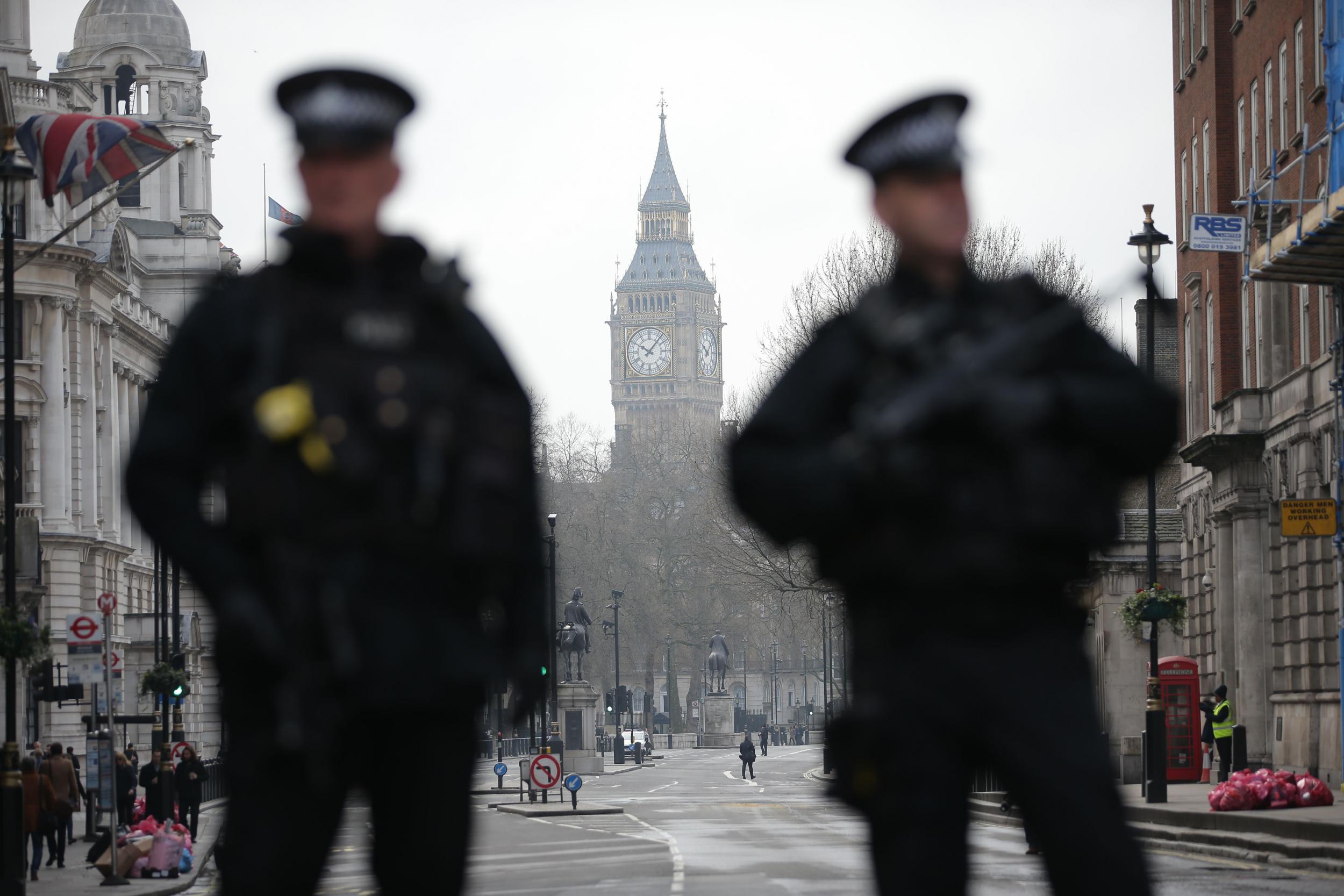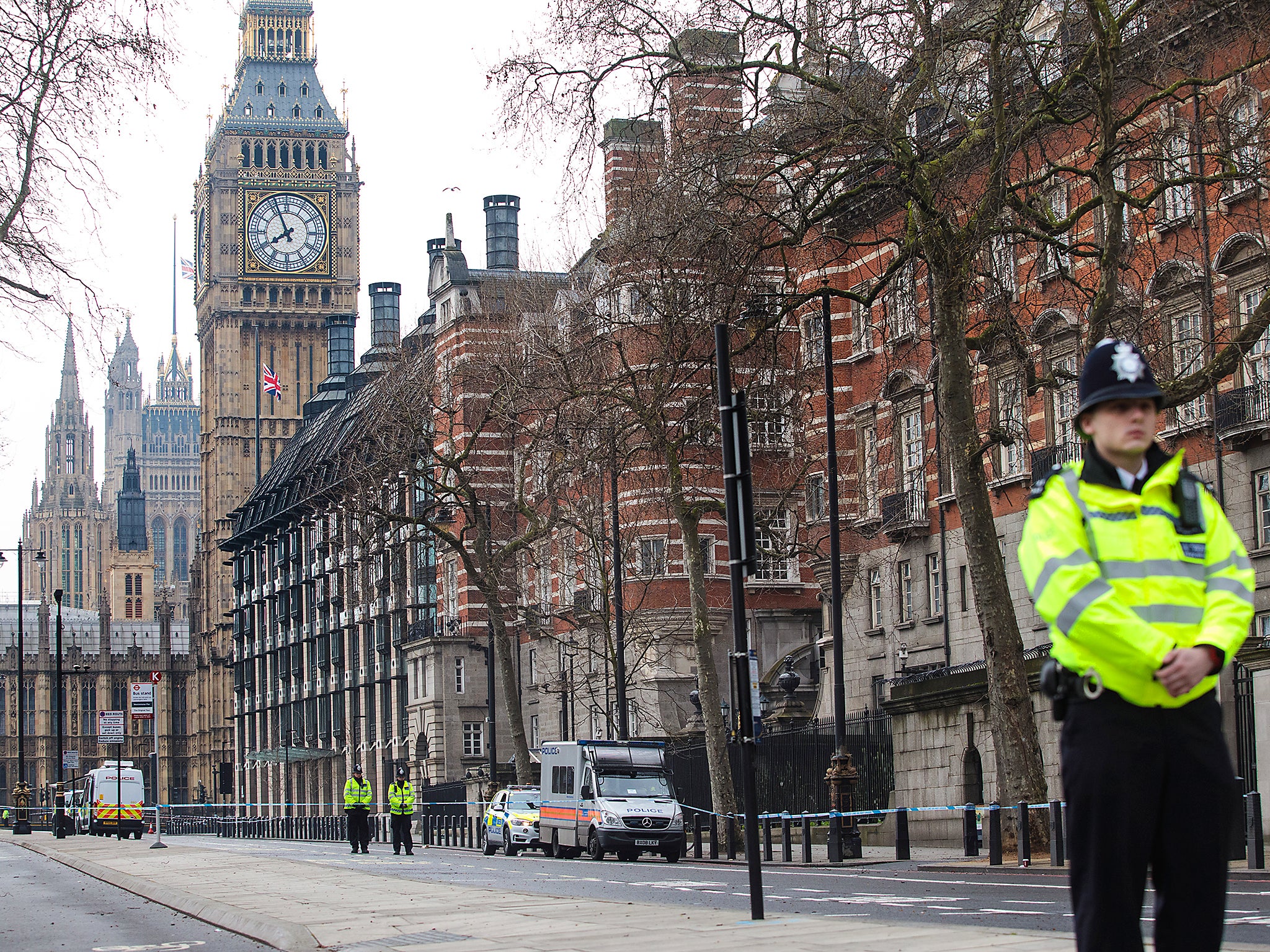London attack: Security services face 'big investigation' into how Khalid Masood slipped through net
The Intelligence and Security Committee is set to take a view on a formal inquiry at its next meeting

The powerful watchdog that scrutinises the intelligence services is set to probe whether officials properly handled the case of Westminster attacker Khalid Masood.
Sources close to Parliament’s Intelligence and Security Committee told The Independent there would likely be a “big investigation” into whether the 52-year-old killer should have been better monitored after it emerged he was known to agents.
They added that there would be a particular focus on whether lessons have been learnt from errors found in the way security services operated in the run up to the brutal murder of Fusilier Lee Rigby in 2013.
Concerns were also raised as to whether parliamentary security is adequately staffed, following a sizeable drop in the number of firearm-trained officers employed by the Metropolitan Police.
It was reported that the officer who shot Masood, ending his rampage, was actually Defence Secretary Michael Fallon’s personal bodyguard, who was only on the scene coincidentally.
Theresa May told MPs in the Commons on Thursday that while Masood was known to security services, his case was historic and that officers did not believe him to be “part of the current intelligence picture”. Later in the day Home Secretary Amber Rudd said it would be wrong to say there had been an intelligence failure.
However, an official close to the ISC said: “[Masood] had at one point been looked at by the intelligence and security services, but obviously it had gone dormant. That sometimes happens with these cases.
“There is going to be a big investigation on this. It is always a worry for the intelligence and security services, when it comes to dropping cases, but they can’t follow them all up.
“At the end of the day they have to take a decision on each one, and they will now want a proper investigation of who knew what and when.”
The committee is due to meet next week where the question as to whether it should launch an investigation or not will be raised.
The group, chaired by former attorney general Dominic Grieve and filled with cross-party politicians from the Commons and Lords, can choose to launch an inquiry itself or it might be asked by Ms May to take the work on.
In 2014 the committee conducted a far-reaching inquiry into the murder of Lee Rigby, killed a year earlier by Michael Adebolajo and Michael Adebowale on the streets of Woolwich.
The committee insider said: “It was a case, once again, where the people who had killed him had been looked at by the security services and there were recommendations.
“It would be a fair assumption to say that the committee would look back at those recommendations with regards to this case.”
The 2014 report “discovered a number of errors” and made “criticisms” where processes were not being followed or decisions not recorded.
The report concluded the errors did not necessarily mean Fusilier Rigby’s murder could have been prevented, but it called for better procedures.
It also highlighted the challenge of monitoring every single individual of potential interest that comes before the intelligence services.
The report said: “Clearly, MI5 must focus primarily on the highest priority individuals. However, that leaves a large group of individuals who may also pose a risk to national security, but who are not under active investigation.
“Previous attempts by MI5 and the police to manage this group have failed: We have not yet seen any evidence that the new programme, established in late 2013, will be any better. This is an important issue and the committee will continue to take a close interest in it in order to ensure that the necessary improvements are made.”
In a statement to MPs, Ms May said Masood was once investigated in relation to concerns about violent extremism, but said he was “a peripheral figure”.
She added: “The case is historic. He was not part of the current intelligence picture. There was no prior intelligence of his intent or of the plot.”
Asked later if there had been a failure of intelligence, cabinet minister Ms Rudd said: “I think that would be absolutely the wrong judgement to make. I’m confident that as we get more information and I really can’t be drawn any further on it at the moment – that we will learn more and take comfort from the information that we have and the work that the intelligence services do.”
Scotland Yard later said Masood had previous convictions for assaults, including GBH, possession of offensive weapons and public order offences.
His first conviction was in November 1983 for criminal damage and his last conviction was in December 2003 for possession of a knife.
He had not been convicted of any terrorism offences, but had been known by a number of aliases.
Also in the Commons, former cabinet minister Theresa Villiers suggested it was time for all police who patrol areas “known to be of interest to terrorists” to be armed.
Ms May argued that the level of security in Westminster had been “enhanced significantly” over her 20 years in Parliament, and that questions over whether individual officers should be routinely armed is an “operational matter” for the police.
But former Met senior investigating officer Peter Kirkham raised concerns that there might have been a fall in the number of armed guards at the gates of Parliament where the Westminster attacker struck.
He said: “I’m beginning to hear that there’s been a reduction [of armed officers] at the Houses of Parliament.
“Hence there wasn’t armed officers specifically on that gate yesterday, it was in the presence of that yard. We’ve heard that it was a protection officer that just happened to be there by chance.”
Reports emerged on Thursday that the individual who shot Masood was Mr Fallon’s Met close protection officer, raising questions as to whether another armed guard would have been on the scene if he were not.

The Met said it would not be appropriate to confirm the identity of any officer involved in a fatal firearms incident.
But his intervention comes against the backdrop of broader falling numbers of firearms officers in the whole of London. Official Home Office figures show they dropped by a quarter, from a high of 2,856 in 2010, to 2,139 last year.
A source from Parliament’s Joint Committee on Security told The Independent there had been no recent discussion about a reduction in the number of armed officers at Westminster.
Any such reduction would need to be considered first by the committee, the source said, which is chaired by Deputy Leader of the Commons Lindsay Hoyle.
“If there was a recommendation to cut the number of armed officers on the frontline at Parliament, we would be told about it,” he added.
Join our commenting forum
Join thought-provoking conversations, follow other Independent readers and see their replies
Comments